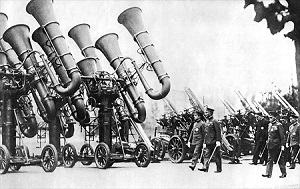 The early December article about Ukraine Are we ready to die for Dantzig? draws the parallels between Putin’s and Germany’s behavior that led to World War II and why, according to history, conceding to Russia would not solve the Ukraine-Russia beligerence.
The early December article about Ukraine Are we ready to die for Dantzig? draws the parallels between Putin’s and Germany’s behavior that led to World War II and why, according to history, conceding to Russia would not solve the Ukraine-Russia beligerence.
This situation has progressed significantly in the last two months. The trumpets are now sounding loud and clear the approach of war.
Here is the update on the situation, and its expected costs.
The trumpets of war – recent events
The last few weeks saw a dance of military and diplomatic events, which will enter the history books. They point to a crucial moment in time, the likely start of a deadly Ukrainian conflict. Such a war would have a significant impact on the entire world economically, if not degenerate into a much larger conflict.
Here are some of the main steps.
- December 13, 2021, Putin – Johnson conversation: Johnson expressed his concerns over the presence of Russian troupes around Ukraine. He supports Ukraine’s integrity and its sovereignty. He restates that an invasion would be a strategic mistake, with significant consequences.
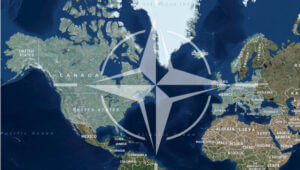 December 21th, 2021, Russia sends a treaty offer to NATO, which it made public a few days before.
December 21th, 2021, Russia sends a treaty offer to NATO, which it made public a few days before.- Many of the demands are non-starters: pullback of military defenses across Europe back to the 1997 borders (pretexting a promess by the US), recognition of a Russian sphere of influence, stopping the organization’s future enlargement and notably the non-admission of Ukraine, heavy constraints on nuclear deployments…
- Because the demands amount to dismantling Europe’s security defense, they are not acceptable and both sides know them as such.
- The treaty offer is therefore not a true offer for diplomacy. Instead, it could be used as a casus belli if Putin’s demands are not met.
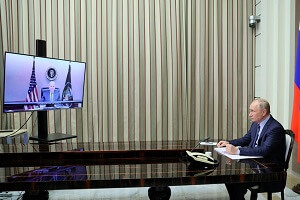 December 30th, 2021, Putin – Biden conversation: Biden restates that the West would not tolerate an invasion of Ukraine and that the price for such a military action would be high. That was the first public announcement that the West was indeed “ready to die for Dantzig”. It was a relief for many participant, notably Ukraine.
December 30th, 2021, Putin – Biden conversation: Biden restates that the West would not tolerate an invasion of Ukraine and that the price for such a military action would be high. That was the first public announcement that the West was indeed “ready to die for Dantzig”. It was a relief for many participant, notably Ukraine.- January 6th, 2022: Russia sends troupes in Kazakhstan to crush a popular revolt. Kazakhstan’s president, Kassym-Jomart Tokayev, claims the revolt is inspired by foreign-backed “terrorists” to justify calling in the Russians, but he may not be able to trust his own forces.
- January 7th, 2022:
- An undersea cable linking Norway to a communication center in Svalbard used by NATO has been cut. The cause is unclear, but Russia has accused Svalbard to track its submarines for the last four years.
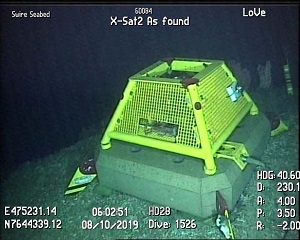 Similar incidents mysteriously happened in November 2021, when the cables to a variety of listening devices able to detect submarines in Norway’s vicinity were also cut. Russia was already suspected of the incidents.
Similar incidents mysteriously happened in November 2021, when the cables to a variety of listening devices able to detect submarines in Norway’s vicinity were also cut. Russia was already suspected of the incidents.
- January 9th, 2022: London delivers a small amount of anti-armor weapons, with their training personnel. Canada sends a small contingent of special forces.
- January 14th, 2022:
- The Ukrainian government is the target of massive cyber attacks. Two days later, it points their origins to Russia.
- Two weeks before, Russia had accused US mercenaries of preparing a false flag chemical attack in Ukraine. The US denied.
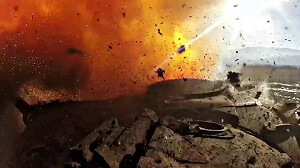 January 18, 2022: The UK flies 80 tons of lethal equipment to Ukraine, notably Javelin missiles (very potent anti-tank weapons). The planes surprisingly fly around Germany.
January 18, 2022: The UK flies 80 tons of lethal equipment to Ukraine, notably Javelin missiles (very potent anti-tank weapons). The planes surprisingly fly around Germany.- January 19th, 2022: Alexei Navalny comments that the West is falling into Putin’s trap again, by offering him a place on the international stage and accepting some of his demands, even if they refuse others.
- January 23rd, 2022: The British government accuses the Russians of a plot to install a pro-Russian government in Ukraine. Russia denies.
- January 24th, 2022: NATO announces that its members will deploy equipment, ships and fighters to the Ukrainian region and closer to the Europe-Russia borders. Denmark sends a frigate to the Baltic and four F-16 to Lithuania. Estonia sends Javelins to Ukraine, while Lithuania sends Stingers. Turkey ships anti-tank drones. Germany sends a field hospital (through Estonia). Biden is considering the deployment of 5,000 US soldiers to Eastern Europe.
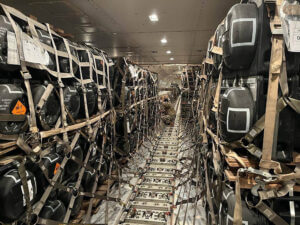 January 25th, 2022: The US sends 80 tons of military equipment to Ukraine, as part to its recent $200m supplementary aid package. The equipment includes 300 Javelin missiles, anti-armor weaponry and tons of ammunition. It is the third shipment in just a few days.
January 25th, 2022: The US sends 80 tons of military equipment to Ukraine, as part to its recent $200m supplementary aid package. The equipment includes 300 Javelin missiles, anti-armor weaponry and tons of ammunition. It is the third shipment in just a few days.- January 26th, 2022:
- NATO formally rejects Putin’s treaty offer. The reply is not made public, but sources mention the following content: NATO will not rescind its “open-door” policy. but it also indicates that Ukraine will not qualify for many years. Russia will not have any veto on NATO’s military deployments, but it opens the door to arms treaty negotiations or an agreement on sizes and locations of military exercises. It offers Russia a choice (an ultimatum?): enter sincere negotiations with Washington and its allies, including Ukraine, or proceed with an invasion and face crushing economic sanctions.
- Putin – Biden conversation. Biden restates the NATO answer, commonly negotiated through 180 meetings between allies, that countries have their own sovereignty and are free to join the defense organization. There will be no sphere of influence to protect or to reinstate. Biden also raised the SolarWinds hack, bounties on US soldiers placed in Iraq, the interference in the US elections and the poisoning and imprisonment of Navalny. The US will act firmly to defend its interests, and Putin has to chose between diplomacy and war.
- In a press conference, Anthony Blinken, the US Secretary of State, states that allies offers a “serious diplomatic path” to Russia, but also leave the door open for Ukraine to join NATO.
- The US Strongly recommends that families of US personnel in Ukraine flies back to the US.
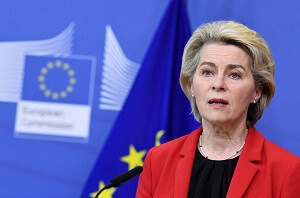 January 27th, 2022:
January 27th, 2022:- Russia announces that it will conduct naval exercises in all naval areas, including the North Seas, the Mediterranean and the Pacific in January and February.
- Meanwhile, Russia has brought forces into Belarus for military exercises, also supposed to happen in February. Belarus, a staunch Russian ally, lays North of Ukraine, but also East of Poland, Lithuania and Latvia.
- Turkey, a NATO member, offers to mediate talks between Ukraine and Russia.
- Ursula von der Leyen, the president of the European Commission, confirms that “nothing is off the table” when it comes to sanctions — including killing the mooted Nord Stream 2 pipeline and removing Russia from SWIFT.
- The Pentagon indicates that the Russian buildup around Ukraine has “increased in the last 24 hours”.
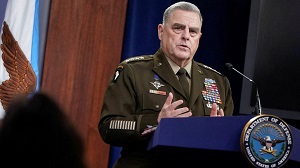 January 28th, 2022:
January 28th, 2022:- During a press conference, US General Milley, the Chairman of the Joint Chiefs of Staff, indicate that a war would be horrific for Ukrainians. In-between the lines, he also states that the West will support Ukraine militarily.
- Biden places 8,500 men on heightened alert. They are part of NATO’s Response Force.
- The US authorizes Estonia, Latvia and Lithuania to send American-made weapons to Ukraine.
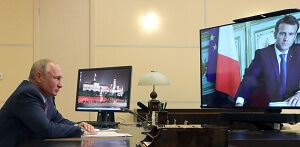 Macron – Putin conversation. Macron requests clarification on the Ukrainian situation. The commentary are divided on its conclusion. Putin would have indicated that he didn’t want the situation in Ukraine to escalate. But he would also have slammed the West for ignoring Russia’s “fundamental concerns”.
Macron – Putin conversation. Macron requests clarification on the Ukrainian situation. The commentary are divided on its conclusion. Putin would have indicated that he didn’t want the situation in Ukraine to escalate. But he would also have slammed the West for ignoring Russia’s “fundamental concerns”.- NATO Secretary General, Jens Stoltenberg, indicates that the alliance is “prepared for the worst”.
- China warns of a full-blown military conflict over Taiwan.
- Johnson announces that he will fly to Moscow to meet Putin.
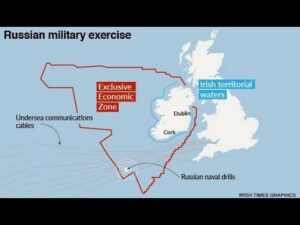 The Russian army announces that will run a naval exercise inside Ireland’s exclusive economic zone. A flotilla of Russian ships, expected to run this exercise, just left harbor. Official and public protests ensued, including Irish fishermen stating that they will peacefully protest inside the war game (good lads!). Russia agrees to run them outside of the EEZ soon after. The area is not only very close to Europe. It is also a nexus of undersea cables vital to the Irish economy. They probably have military uses as well. Interestingly enough, an ‘oceanographic’ ship of the Russian Navy, strongly suspected of being able to spy on undersea cables, mysteriously appeared and was seen doing suspicious zigzags in the area in August last year.
The Russian army announces that will run a naval exercise inside Ireland’s exclusive economic zone. A flotilla of Russian ships, expected to run this exercise, just left harbor. Official and public protests ensued, including Irish fishermen stating that they will peacefully protest inside the war game (good lads!). Russia agrees to run them outside of the EEZ soon after. The area is not only very close to Europe. It is also a nexus of undersea cables vital to the Irish economy. They probably have military uses as well. Interestingly enough, an ‘oceanographic’ ship of the Russian Navy, strongly suspected of being able to spy on undersea cables, mysteriously appeared and was seen doing suspicious zigzags in the area in August last year.
- January 30th, 2022:
- The US lawmakers have announced that they have a strong bipartisan support and will soon reach an agreement on “the mother of all sanctions”.
- The UK is considering doubling its troop numbers and support to Estonia. The new aircraft carrier is on standby to move within hours.
Hints that a war is about to start are pretty heavy. Both sides are bringing military equipment to the region and posturing about their military capabilities and willingness to go to war.
The military aspects
Your author was a young officer in the French army, a NATO country, during the 90’s and had a decent understanding of the then NATO defense plan against the “Orange Army”.
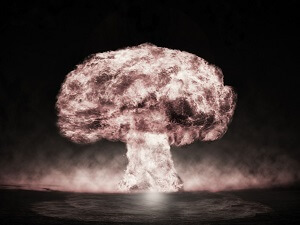 Here are the big lines:
Here are the big lines:
- The imbalance of conventional forces in Europe was so severely in favor of the Warsaw Pact that all NATO conventional forces were expected to be “consumed” in the space of 72 hours.
- Those three days were just enough to relocate governments and most civilian populations out of major cities. Nuclear nations (France, UK, US) would then launch tactical weapons (small A-bombs targeting the Russian forces) to stop the Russian army’s progression.
- If these proved insufficient to stop the advance, strategic weaponry (large N-bombs targeted at Russian cities) would be deployed.
- Russia was expected to reply in the same fashion, bringing both sides into a Mutually Assured Destruction.
- Simply said, deterrence was the only viable solution against the strength of the Russian army.
- And it worked.
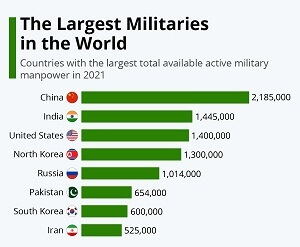 But a lot has changed in the following decades. The Cold War is over; the Warsaw Pact has been disbanded. Russia has lost many Eastern countries to the West, and their economic and military strengths along them.
But a lot has changed in the following decades. The Cold War is over; the Warsaw Pact has been disbanded. Russia has lost many Eastern countries to the West, and their economic and military strengths along them.
But do not underestimate the Russian army. It remains one of the largest armies in the world, by headcount to start with. Putin has reorganized the old conscription military model into a smaller, better equipped and much more efficient professional army. Its equipment is advanced in many areas, as well as battle-tested. It is a highly motivated force to be reckoned with.
Ukraine is a 45 million people-strong country. The headcount of its entire army is equivalent to just Russia’s current deployment, which is only 10% of its military headcount. 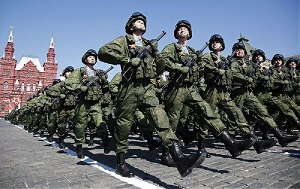 Putin has massed massive modern armament all around the Ukrainian borders (except maybe mobile hospitals???). Ukraine is receiving financial and military support from the West, and the equipment sent is lethal, technically advanced and top quality. The Javelin missiles will draft a heavy toll on Russian tanks and troop carriers. Also Ukrainians have the benefit of knowing and having prepared the battleground.
Putin has massed massive modern armament all around the Ukrainian borders (except maybe mobile hospitals???). Ukraine is receiving financial and military support from the West, and the equipment sent is lethal, technically advanced and top quality. The Javelin missiles will draft a heavy toll on Russian tanks and troop carriers. Also Ukrainians have the benefit of knowing and having prepared the battleground.
Nevertheless, it will be very hard for Ukraine to resist a Russian invasion. As General Milley, the Chairman of the Joint Chiefs of Staff, made it very clear: a Russian invasion will bring a ‘horrific outcome‘ to Ukrainians.
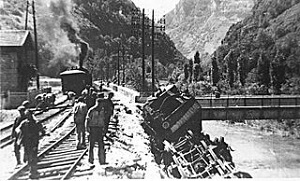 But a heavy frontal confrontation is not how Kyiv intends to play the confrontation: Russia will likely win the war, but it cannot win the peace.
But a heavy frontal confrontation is not how Kyiv intends to play the confrontation: Russia will likely win the war, but it cannot win the peace.
Multiple wars have shown that you need at least one soldier for every 40 civilians to pacify an occupied territory. Ukraine’s population of 45 million is both large and dense (cities are harder to keep). Furthermore, Ukrainians are highly motivated to resist, and die, for their country (paramilitary organizations abound). Ukraine has stored large depots of small weapons and their ammunition to sustain a solid “asymmetric warfare”, aka resistance.
In other words, Russian forces are nowhere near what is needed to pacify Ukraine by force. Putin will have to send heavy reinforcements and spend enormous amounts to sustain an occupation if he choses a country-wide invasion. The Ukrainians intend to make an invasion extremely costly in the long run. They will make sure that Russian bodybags will pile up, and that the purse will bleed heavily.
The economic warfare
Putin is not motivated by land conquest, but by his desire to rebuild the Sovietic superpower. In that framework, the Ukrainian independence is worse than the loss of a key country; it sets an awfully bad example. Follow-up consequence, Russia would not stop there. And so the West has to counter a Russian aggression.
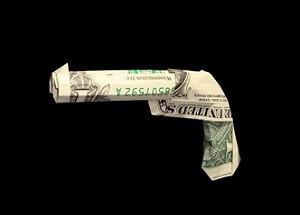 The Occident has no intention of engaging Russia through a direct armed conflict; both sides know that it would lead to a Mutually Assured Destruction (although there is no restriction on feeding proxy wars…). So the way to go is economic warfare.
The Occident has no intention of engaging Russia through a direct armed conflict; both sides know that it would lead to a Mutually Assured Destruction (although there is no restriction on feeding proxy wars…). So the way to go is economic warfare.
The sanctions imposed by the Obama administration for invading Crimea in 2014 were moderate. They may have pushed Russia back into its borders in several economic sectors but, overall, they have been considered ‘moderately effective’, at best.
Nobody knows the true nature of the sanctions to be applied by the Biden administration if Russia invades Ukraine, but all agree that they will be much harsher. They have been described as “start high, stay high”. The US Congress is calling its package “the mother of all sanctions”. They will target all sectors deemed critical to the Kremlin.
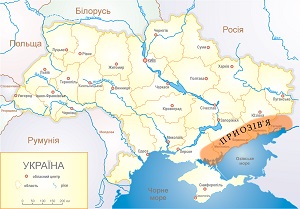 They will be implemented even if Russia runs a moderate land-grab, like to create an access corridor to Crimea around the Sea of Azov into the Pryoziv’ya region. That area controls two large harbor towns, as well as Crimea’s water supply.
They will be implemented even if Russia runs a moderate land-grab, like to create an access corridor to Crimea around the Sea of Azov into the Pryoziv’ya region. That area controls two large harbor towns, as well as Crimea’s water supply.
The sanctions may include
- Preventing US financial institution from purchasing new issues of Russian government bonds. Those sanctions would have negligible effects.
- Sanctions on specific Russian banks, energy companies, or defense firms… Two possible financial targets are the huge VTB Bank, and Gazprombank. The sanction could also prohibit financial support to entire segments of the Russian industry, like any oil & gas project or activities. This would have more teeth, but remains modest.
- Sanctions on oligarchs, who have a lot of money abroad (notably in ‘Londongrad’). In turn, tose sactions would have impact on the efficiency of their companies. Putin has direct and indirect ownership of these companies, so such an approach is Putin-centric.
- Cutting Russian financial institutions from the dollar, the euro and most of the world banking systems. The last round impacted only a few minor financial institutions but was efficient at hurting these companies. This round would go after the large critical ones. It would be much more effective.
 Export controls, notably the sale of technology (computer chips) to Russia, which has a slower but efficient poisoning effect. This approach killed China’s Huawei pretty efficiently.
Export controls, notably the sale of technology (computer chips) to Russia, which has a slower but efficient poisoning effect. This approach killed China’s Huawei pretty efficiently.- The export control will also prevent many important items from reaching Russia, like smartphones, airplane and automobile components… Those export controls will likely target aerospace and arms, which are major revenue-producers for the government.
- They could also prevent the sale of any consumer goods (from laptops to washing machines), in coordination with European, South Asian and other foreign producers. Russia has little consumer good capacity, and it will impact its population and economy in general.
- Lastly, the West could call for a SWIFT suspension, a major action which deserves an explanation on its own (below).
Russia will certainly retaliate, notably by restricting the distribution of its large natural resources, but such export control would only have impact if the product is critically needed (who cares that Russia produces 30% of the world’s diamonds?) or if the distribution requires heavy infrastructure which is not easily replaced (shipments of steel will take longer to be delivered from elsewhere, but any harbor can handle such delivery…).
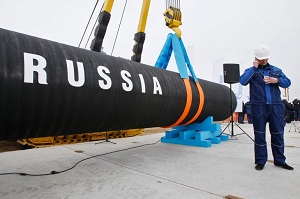 And so, Russia’s options are limited:
And so, Russia’s options are limited:
- There have been a few days during which gas didn’t flow into Europe recently. They were due to “technical glitches“, but they probably were a reminder of Russia’s energetic leverage. It is very possible that Russia will asphyxiate Europe energetically, which it had promissed to never do. This would redirect Europe entire energy policy away from Russia. It would take years to implement, but Russia would bear an enormous long-term economic cost. The US is about to Qatar make a “non-NATO ally” as a reward for emergency LNG delivery to Europe for instance.
- Russia could also suspend the export of titanium, of which it is the lead exporter (20% of the world’s volume). The metal is needed in multiple industries, but notably aviation and defense. All aerospace maker are currently verifying their supplies and stockpiling the metal.
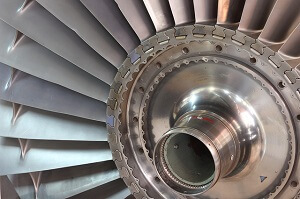
- Russia exports 40% of the world’s palladium, but the metal is used for catalytic converters essentially.
- Russia is a lead exporter of many agricultural products, notably wheat (world’s largest), sugar beet (first), potato (third) and sugar (eighth). Sanctions would have an impact on prices, but the strategic leverage is more modest.
- Russia has no issue using cyber warfare, including against allies. This can have significant economic impact. The West would certainly retaliate in the same manner. You’d be naive to think that the US, Europe and western allies (Israel) have no such capacities.
Overall, the US believes that the impacts of the Russian counterreaction will remain manageable, and it will help other countries mitigate their effects.
SWIFT
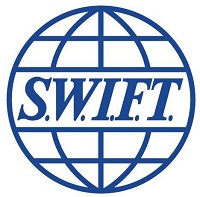 The most drastic sanction would be to remove Russia from SWIFT, the Belgium payment processing company in-between 11,000 financial institutions in 200 countries. The behemoth has no real alternative and is core to any international transactions.
The most drastic sanction would be to remove Russia from SWIFT, the Belgium payment processing company in-between 11,000 financial institutions in 200 countries. The behemoth has no real alternative and is core to any international transactions.
The company wants to be an “neutral global cooperative”. It is overseen by all the G10 central banks and is not technically obedient to the US (but the US could impose sanctions on SWIFT and arm-wrestle it successfully). Suspending a country requires unanimity of its 25 member-board, which is not guaranteed. Practically speaking, it would need a vote from the European Parliament to get there, and the parliament has already approved this suspension in a non-binding resolution last year.
The day-to-day impact would be significant.
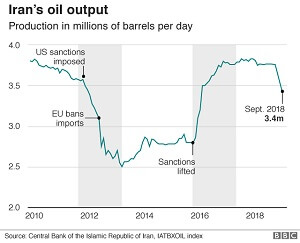 When Iran was cut in 2012, oil exports dropped 40%, and foreign trade dropped 30%, even if the country had little other international commerce. Russia’s economy is similar in its hydrocarbon nature, but it is also more connected internationally. The effects would have at least the same magnitude on Russia.
When Iran was cut in 2012, oil exports dropped 40%, and foreign trade dropped 30%, even if the country had little other international commerce. Russia’s economy is similar in its hydrocarbon nature, but it is also more connected internationally. The effects would have at least the same magnitude on Russia.- Credit card processors (Visa, Mastercard) would cease all payments inside Russia. The national system (“Mir”) would subside, but it has an estimated 24% of the national processing market. International transactions through this system are cumbersome and limited.
- SPFS, the Russian equivalent of SWIFT , only covers 20% of domestic transfers, with a 30% target for 2023. It works only during business hours, not 24/7 like SWIFT. It will not provide the same quality of access or service, even internally.
- The Chinese equivalent, CIPS, is several miles further behind, with 0.3% of penetration.
- INSTEX, the European version of SWIFT, will not step in.
- As a result, Russia would certainly move into cryptocurrencies, notably the digital rouble that the central bank approved in October 2020. The digital ruble was only in test mode in 2021, and it will become as toxic internationally as the regular ruble. The OFAC has no intention of permitting one if the other is suspended.
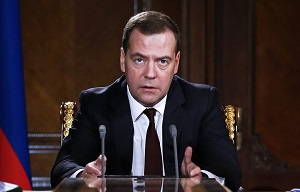 Cutting Russia from SWIFT is a nuclear option. The effects are very significant. Once done, there would be no further economic sanctions, and so much less threat available against Russia.
Cutting Russia from SWIFT is a nuclear option. The effects are very significant. Once done, there would be no further economic sanctions, and so much less threat available against Russia.
The Russian prime minister stated that it would treat the suspension as a nuclear option and it is likely that Russia would retaliate as much as it can. Now the question is if/how the retaliation would impact the world. Cutting oil & gas sales to Europe will probably have the most significant economic effect.
The impact of war on Russia
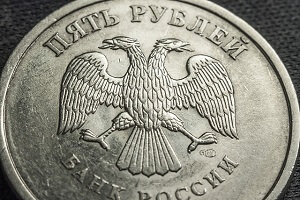 Most of the impact of the conflict on Russia is expected to be by way of economical sanctions. The outcome is likely to be the following.
Most of the impact of the conflict on Russia is expected to be by way of economical sanctions. The outcome is likely to be the following.
- With much of its oil and industrial exports halted, and multiple sectors unable to sell their products, the Russian economy will plunge.
- Corporate funding will become very problematic for companies whose sales are not directly impacted by sanctions.
- As a tertiary consequence, you will see massive unemployment.
- Capital will flee the country, further denting growth and recovery avenues.
- The ruble will fall significantly. It would facilitates Russia’s exports (that nobody will want), but make imports more expensive (which Russia may not be able to settle). Most major currencies will become volatile for a while.
- Nord Stream 2, the North sea pipeline bringing as into Germany would not be approved. The economic loss would fall entirely on Gazprom, which has funded all its construction.
The impact of war on the international financial markets and the rest of the world.
We can expect the following impact on international commerce.
Commodities
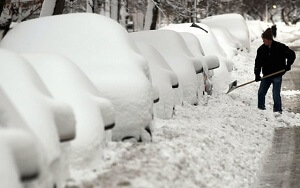 The flow of hydrocarbons to Europe could be halted, in the middle of winter.
The flow of hydrocarbons to Europe could be halted, in the middle of winter.- Europe is reliant on Russia for 35% of its gas needs, to heat its population as well as power its economy.
- Its reserves are already low and will not last long.
- Organizing a replacement logistic takes years (harbors, ships, pipelines…) and will not be operational any time soon.
- So the impact on the European economy and the social model of Russian controls will not be benign. The secondary effect of the rest of the Western world and the world’s economy will also be felt.
- Russia will most likely cut the energy delivery to Ukraine, which redistributes it to Slovakia, Hungary and the Czech Republic. All these countries will have their energy needs directly impacted.
Western Oil and Gas will rally, but so would several other commodities.
 Russia is wheat’s largest exporter, and it would be cut from international markets. Ukraine is a major wheat exporter as well. This being said, winter is not the time where you plant, grow or harvest wheat, so it is the longer-term market which will be impacted. Expect a solid rally, volatility and some weird term structure deformation in wheat.
Russia is wheat’s largest exporter, and it would be cut from international markets. Ukraine is a major wheat exporter as well. This being said, winter is not the time where you plant, grow or harvest wheat, so it is the longer-term market which will be impacted. Expect a solid rally, volatility and some weird term structure deformation in wheat.- Other aggricultural commodities will be impacted, not just wheat. Ukraine and Russia are corn’s largest exporters as well, for instance.
JP Morgan expects the barrel at $150, a reduction in global GDP of 0.9% and a doubling of inflation expectations to 7%.
Equities
 BP owns 20% of Rosneft, which represents a third of its production. BP also has multiple exploitations in Russia. Shell owns 27.5% of Russia’s first LNG plant, which represents 30% of the country’s export. Other oil majors have similar participations.
BP owns 20% of Rosneft, which represents a third of its production. BP also has multiple exploitations in Russia. Shell owns 27.5% of Russia’s first LNG plant, which represents 30% of the country’s export. Other oil majors have similar participations.- European banks own parts of Russian banks: Austria’s Raiffeisen derived 39% of its profit from Russia. UniCredit, SocGen have smaller but non-negligible participations.
- There are multiple industrial cooperation as well: Carlsberg, Germany’s Metro… Manufacturing is 24% of Germany’s economy, and the country would suffer more from an equipment/technology embargo than its European peers.
Many Western equities will fall for direct financial reasons, even before the macro economic impact of economic sanctions comes in.
Rates will fall
Government bonds are safe havens in wars, and the G10 rates will likely fall.
- Not only US T-bonds will be looked for in the flight for safety, but the economic slowdown will also reduce the US’s need to raise rates (despite inflation concerns?).
- The recent rally in rates, due to inflation concerns, could be erased.
- The Fed could restart its purchases, re-increasing its balance sheet, to bring liquidity into the economy again.
Currencies
- Swiss Francs will rally – typical heaven.
- Gold is already expensive, but could further rally.
Putin’s choice.
The ball is in Putin’s hands. Putin is the only one who knows what Putin thinks. He is very protective, even with his direct collaborators, so all bets are off for guessing what he trully thinks.
But we can certainly bring some light on the important information.
When would war happen (if it does)?
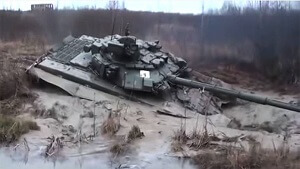 Ukraine is a flat and wet country, with many marshes, aka lots of mud. Tanks are very very heavy pieces of equipment; they destroy roads just by their own weight. They certainly do not swim well in mud. Winter is therefore the best time to invade Ukraine.
Ukraine is a flat and wet country, with many marshes, aka lots of mud. Tanks are very very heavy pieces of equipment; they destroy roads just by their own weight. They certainly do not swim well in mud. Winter is therefore the best time to invade Ukraine.- But China has asked Putin not to interfere with the Chinese Olympics (February 4-20), and Putin needs Xi’s help for his “military-technical” reaction. The two leaders will actually meet during the games, and it’s not to talk about medals…
- So Putin would have to strike this week, or in late February, after the games. I would bet on February (but that’s an easy bet, we are January 30th…).
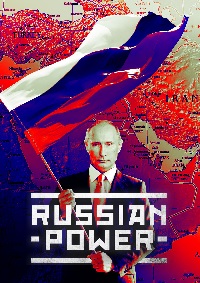 The political outcome for Putin
The political outcome for Putin
Putin is an old-guard KGB officer. He dreams of old Russia regaining its power and influence. He dreads a former ally claiming and obtaining sovereignty and independence.
Russia is large, has a rich culture and history, a wide population and many resources, but its economy is that of a gas station. It has long lost the clout of World War II’s victory. Besides its veto power at the Security Council and its military & nuclear forces, it is not one of the big international powers anymore, and cohercion through war will not bring Russia back to leading international club.
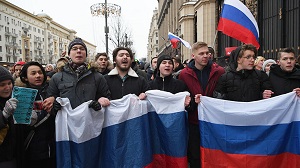 Meanwhile, the Russian population faces the consequences of decades of communist economic mismanagement, and now Putin’s kleptocracy. Building are literally crashing down in broad daylight onto their occupants. Poverty abounds. Many Russians do not even have access to sanitation. Despite all their pride and the government’s brainwashing, Russians are not interested in wars or in endless military spending. They still consider Ukrainian like brothers (ok, maybe lower cousins) and would not understand the reasons for bombing them to oblivion.
Meanwhile, the Russian population faces the consequences of decades of communist economic mismanagement, and now Putin’s kleptocracy. Building are literally crashing down in broad daylight onto their occupants. Poverty abounds. Many Russians do not even have access to sanitation. Despite all their pride and the government’s brainwashing, Russians are not interested in wars or in endless military spending. They still consider Ukrainian like brothers (ok, maybe lower cousins) and would not understand the reasons for bombing them to oblivion.
The bodybags of a Ukrainian adventure will crush Putin’s popularity, if the harm of the economic meltdown doesn’t do it first. It will be impossible for the Russian president to sell a Ukrainian crusade as a success to the Russians.
So either Putin takes NATO’s offer of negotiations (for now) and paints it at home as a diplomatic success, or he crushes both his country and his reign. It looks like a nice little corner.
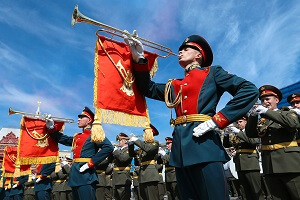
Hopefully, the trumpets of war are also calling Putin for a wise decision. We will know soon enough.
Enjoy the Olympic games in the meantime.
References
- The Washington Post, May 4, 2004: A Proven Formula for How Many Troops We Need
- Geohistory, 2019, A Guide to Russia’s Resources
- Medium, Cormoran’s Nest, July 3, 2020, Applications of Economic Warfare. States use of sub-threshold economic…
- Carnegie Moscow Center, May 28, 2021, How Disastrous Would Disconnection From SWIFT Be for Russia?
- Reuters, November 3, 2021: Russian gas pipeline stuck in reverse in Europe
- The Guardian, December 7, 2022, What sanctions could the US hit Russia with if it invades Ukraine?
- Radio Free Liberty, December 9, 2021, The ‘Nuclear Option’: What Is SWIFT And What Happens If Russia Is Cut Off From It?
- Brookings Institute, December 21, 2021, Russia’s draft agreements with NATO and the United States: Intended for rejection?
- The Guardian, January 7, 2022, Putin taking a risk in Kazakhstan and may hope for reward
- The New York Times, January 8, 2022, U.S. Details Possible Sanctions on Russia Over a Ukraine Invasion
- The Drive, January 10, 2022, Undersea Cable Connecting Norway With Arctic Satellite Station Has Been Mysteriously Severed
- UK Government, January 13, 2021, PM call with President Putin of Russia: 13 December 2021
- MarketWatch, January 14, 2022, Here’s what a Russian invasion of Ukraine would mean for markets
- The Guardian, January 14, 2022, Ukraine hit by ‘massive’ cyber-attack on government websites
- The Guardian, January 16, 2022, Ukraine says evidence points to Russia being behind cyber-attack
- AP News, January 21, 2022, ‘Minor incursion’ by Russia could complicate West’s response
- Reuters, January 25, 2022, How a Russian-Ukraine conflict might hit global markets
- MSNBC, The Rachel Maddow Show, January 25, 2022, Transcript: The Rachel Maddow Show
- The New York Times, January 26, 2022, U.S. and NATO Respond to Putin’s Demands as Ukraine Tensions Mount – The New York Times
- The White House, January 26, 2022: Readout of President Joseph R. Biden, Jr. Call with President Vladimir Putin of Russia
- Bloomberg, January 26, 2022, Why Swift’s Global Payments Are a Sanctions Pain Point
- Business Insider, January 26, 2022, Alexei Navalny warns the US is falling into Putin’s trap on Ukraine ‘like a frightened schoolboy’
- USA Today, January 26, 2022, ‘We’ve seen what war can do’: Ukrainians on high alert over feared Russia invasion
- BBC News, January 26, 2022, US sends firm response to Russia’s Ukraine demands
- Reuters, January 26, 2022: US Plane brings Javelin missiles and launchers to Ukraine
- CNN, January 27, 2022, Pentagon says Russian buildup has increased “in the last 24 hours” near Ukraine
- CBS News, January 27, 2022, U.S. rushes weapons into Ukraine as Biden predicts a Russian invasion
- Reuters, January 28, 2022, Analysis-Aerospace firms brace for turbulence in Russian titanium supplies
- CBS News, January 28, 2022: Stoltenberg says NATO is “prepared for the worst” in Russia-Ukraine conflict
- Newsweek, January 28, 2022, With All Eyes on Russia, China Warns U.S. of Full Blown Military Conflict Over Taiwan
- CNN Politics, January 28, 2022, Biden says he’ll move troops to Eastern Europe as top general warns of ‘horrific’ outcome if Russia invades Ukraine
- MSNBC, January 28, 2022, Fmr. U.S. Ambassador: Putin is ‘worried’ about potential U.S. sanctions
- Newsweek, January 28, 2022, With All Eyes on Russia, China Warns U.S. of Full Blown Military Conflict Over Taiwan
- Reuters, January 29, 2022, Ukrainian reservists gear up in case of conflict with Russia
- Reuters, January 29, 2022: Analysis-Aerospace firms brace for turbulence in Russian titanium supplies
- CNBC, January 29, 2022: UK expected to boost its NATO offer with major military deployment to Europe’s borders amid rising Russian aggression
- Associated Press, January 30th, 2022, US pledges to put Russia on defensive at UN Security Council


